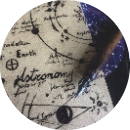Read the following passage and mark the letter A, B, C, or D on your answer sheet to indicate the correct answer to each of the questions from 28 to 34.
Soichiro Honda was bom in 1906 in a small village in Japan. It was so small that it didn’t even have electricity. His family was poor. Soichiro had eight brothers and sisters. Sadly, five of them died when they were young because they did not have good medical care. When Soichiro was eight years old, he saw his first automobile. He was amazed by it. For the next 50 years, he loved machines on wheels. When he was 15 years old, Soichiro left his village to work at an auto repair shop in Tokyo. It was then that Honda discovered motorcycles. He spent all of his free time fixing and riding motorcycles. He returned to his village six years later to open his own garage. Soon he owned several shops and had over 50 employees.
At the same time, he began to build and race motorcycles and cars. Honda loved to race, and he became one of Japan’s most competitive drivers. In 1936, his race car crashed while he was driving 100 miles per hour. Half of Honda’s face was crushed, and he had other serious injuries. It took him a year and a half to recover. After this, his family begged him to give up racing. He looked for a less dangerous job and finally decided to become a manufacturer.
At first, he manufactured engine parts. The Japanese navy used a lot of his engine parts in World War II. In 1948, after the war, he started the Honda Motor Company. He started the company with only $3,300. He made his first machines from engine parts that the military did not need after the war. These machines were not real motorcycles; they were bicycles with motors. People bought them because they needed a reliable form of transportation. As Honda’s business grew, he began to make different types of motorcycles. By 1950, his motorcycles were selling all over Japan. But there were 50 other motorcycle makers in Japan at the time. In 1958, Honda designed a lightweight motorcycle called the Super Cub. It was a huge success and Honda made a lot of money. Two years later, Honda built the world’s biggest motorcycle factory in Japan.
By the 1960s, the Super Cub was popular all over Asia. But Honda wanted the motorcycle to be popular all over the world. In Europe, he put his motorcycles in difficult races to show how good they were. In the United States, he tried a different method. He used a magazine ad with the words “You Meet the Nicest People on a Honda." It showed ordinary Americans such as students, businessmen, and older people all riding happily on the Honda Super Cub. The ad appeared in many popular magazines.
Readers who had never ridden a motorcycle saw the ad. The ad showed that motorcycles were not just for crazy young people who wore black leather jackets. They were good for other people too. The company sold thousands of motorcycles to new riders. Honda then started to put the ads on television. This was also very successful. For example, he put an ad for his motorcycle on during the Academy Awards program. Millions of people watched that program, and on the next day, sales of the motorcycle went up tremendously. By 1968, Honda had sold 1 million motorcycles in the United States.
In 1963, his company started to make cars. In 1972, it produced the Civic-, the next year, the Accord; and then in 1978, the Prelude. Soon, the company was one of the world’s biggest automobile makers. Honda was also famous for his business style. He believed that workers and bosses should have a close relationship. He also thought it was important to encourage workers to do their best.
In 1973, Soichiro Honda retired as president of his company. He died in 1991. Honda was very important to Japan’s recent history. He and many other business leaders helped make Japan into a leading industrial nation.
Where did Honda go when he left his village?
A. went to work at an auto repair shop in Tokyo
B. went to work as a motor racer
C. went to open repair shop
D. went to fix and ride motorcycles





























